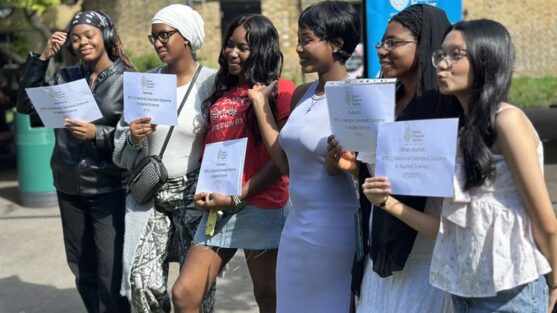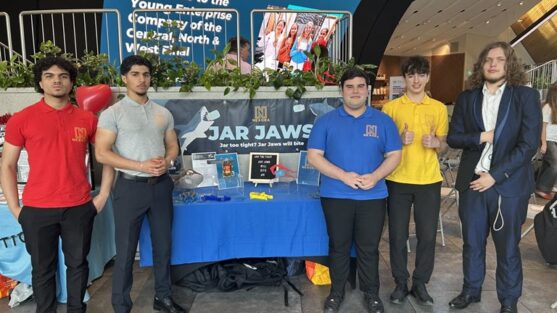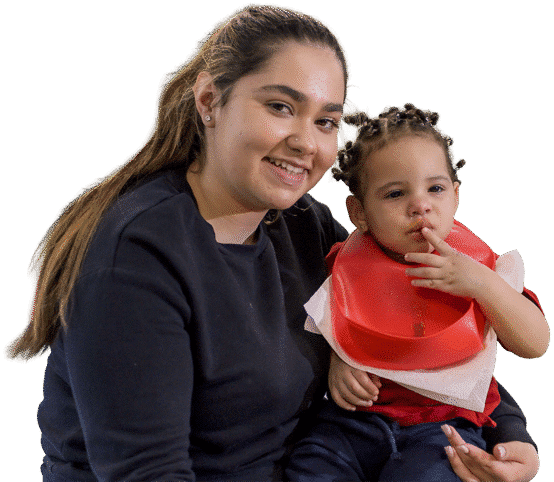Courses
Students can take any combination of 30 A level and Level 3 Applied Diploma subjects. Vocational programmes include 11 Level 3 Extended Diplomas, including BTEC, CTEC and University of the Arts courses, and 4 T Levels. We also offer BTEC Level 2 and Foundation options, along with GCSE Maths and English language retakes.
Students
At Saint Francis Xavier, we develop the whole person. Our commitment goes beyond academic achievement; we equip students with the confidence, values, and skills needed to thrive in higher education, employment, and adult life. With an extensive range of courses, our students receive expert teaching in our modern, state-of-the-art facilities.
Parents & Carers
Personal Tutors will work with both you and your student to overcome any obstacles and achieve their potential. We build a positive ethos around learning and behaviour, support students with discussion and advice, invite you to progress review evenings, provide each student with an Individual Learning Plan (ILP), and send you full reports.
Upcoming Events
Open Evening
Wednesday, 4th March · 4pm – 6pm
Explore your options and secure your offer from Saint Francis Xavier Sixth Form College for September 2026.
Book your place to visit London’s top performing and friendliest sixth form college with a 97% pass rate in A levels, BTECs, UAL Diplomas and T Levels.
Hire Our Spaces
Hold your next event with us in one of our many available spaces. Choose from: a multi-use games area, sports hall, dining hall and garden, multi-purpose hall, dance/drama studio, fitness suite, meeting/conference rooms, computer suite, chapel and music studio. Kitchen and catering facilities and free parking are also available.
Nursery
‘Happy staff make happy children’
Nightingale’s Nursery is set in the beautiful, secure grounds of Saint Francis Xavier Catholic Sixth Form College where children can play outside and help tend the vegetable patch. The nursery follows the Early Years Foundation Stage (EYFS) statutory framework and provides a holistic learning environment, paying special attention to the transition from home to nursery, reassuring parents of their child’s wellbeing and progress on a daily basis.
Nightingale’s friendly team builds positive relationships with all the children and parents.
Latest News & Blog

Saint Francis Xavier Sixth Form College announces excellent 2025 Level 3 examination results
We congratulate all our students who received their excellent public examination results today. We are delighted to see results improving on last year’s impressive pass rates across A level, BTEC, CTEC and UAL courses. Our second year T Level results have also been excellent. The overall pass rate at Level 3 was 97%, including 50% […]

Celebrating SFX diversity at Culture Day
Saint Francis Xavier Sixth Form College was filled with colour, flavour, and pride as we hosted our much-anticipated Culture Day — a joyful celebration of the rich diversity that makes our college community so special. We are proud to be a truly inclusive college, welcoming students and staff from a wide range of cultural and […]

SFX Young Enterprise Team Wins Regional Final at Samsung KX
We’re incredibly proud to announce that our Young Enterprise team, Nexora, has won the Central, North & West London Final, held at the prestigious Samsung KX venue in King’s Cross. Representing St Francis Xavier Catholic Sixth Form College, students Guilherme, Nawid, Tiago, Ruan and Kevin competed against seven other schools in a high-pressure final that tested their innovation, professionalism and business […]




